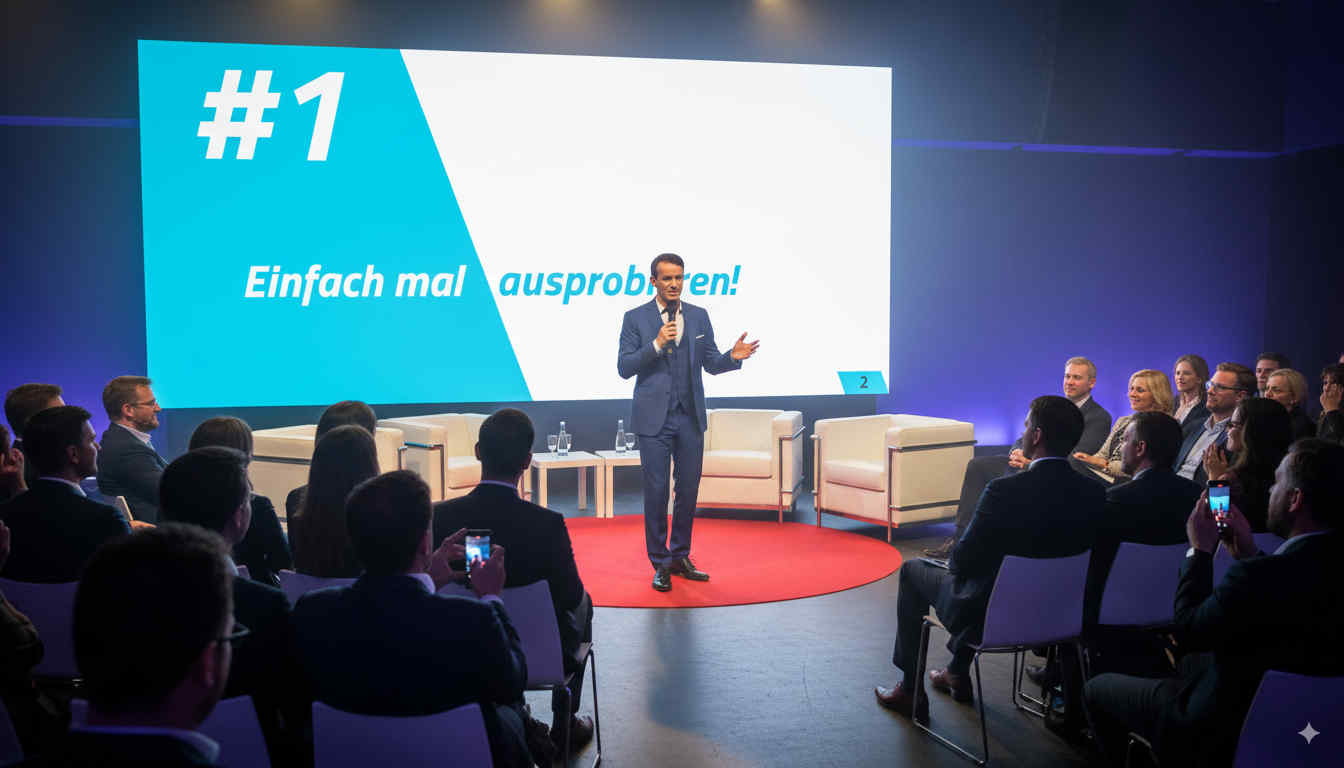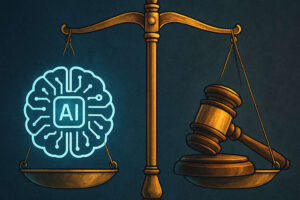In the last few months, I have seen many Discussions about artificial intelligence followed - on panels, in webinars, on LinkedIn. And I find myself thinking more and more often: We're doing it ourselves unnecessarily difficult.
There are people sitting on stages talking about neural networks, semantic vectors and data architectures, as if they want to prove above all that they have fully understood how this mysterious something is supposed to work. That is legitimate, but it has to do with genuine mediation little to do. Because half of those who listen drop out after three minutes. And that's where the real problem begins: we lose those who curious because we give them the feeling that it is only worthwhile if they create mechanisms that are at least as complex.
Complexity is not the same as depth
I sometimes have the feeling that many „AI experts“ confuse depth with complexity. Depth arises when someone explains something in such a way that you can feel when it suddenly becomes clear what this has to do with me, with my everyday life, with my company. When it affects me curious does. If it inspires me to do the same try out to want.
Complexity The "nodding" effect, on the other hand, arises when someone spins something in technical language until everyone nods without understanding anything.
I now use AI in an enormous number of areas. I've built websites with it, created texts and keynotes, worked through legal issues and I have ChatGPT explain pretty much everything I don't understand in everyday life. That's why AI makes me smarter every day.
But I don't use AI to control my thinking or my decisions. replace. But about me inspire to let go. To question, discuss and enrich my thoughts. And for me, that's the great benefit of artificial intelligence: the moment when it helps me, clearer to think.
For me, this is the crucial point: AI is No substitute for thinking, but an amplifier for it.
I do not use ChatGPT to get answers
The actual intelligence is not created in the machine, but in the Dialog between the two of us. I throw a thought into it, get something back that forces me to be more precise, and start to think more clearly myself as a result.
I often compare it to a good conversation:
If someone just agrees with me, little happens.
If someone contradicts me, I have to take it in, understand it, sort out my thoughts and reply again.
This creates Exchange. Irritation and reflection lead to Inspiration.
And that's exactly what happens with AI - if you use it correctly.
That's why I believe that the most important skill of the future is not formulating prompts that produce perfect answers, but rather Questions to ask. Over and over again. And to make your own work results more precise, more comprehensive, better - simply more intelligent - to make.
We need more awareness, not more tools
Many companies are currently investing huge sums in AI solutions and expect, that they are using labor replace can. I keep hearing from specialists that they now run their company with X number of agents, who they treat like employees.
At first glance, this sounds extremely attractive. However, it is a risky undertaking and, above all, one that requires a huge expectations creates. In my opinion, this is an expectation that today's AI cannot yet fully satisfy. Because AI today has a structuring, sorting and therefore knowledge-enhancing effect in many areas. However, making automated decisions based on this and thus Handing over responsibility, can quickly become a boomerang.
And in my eyes it is also not the main benefit of AI. I am convinced that it is not about replacing work. But to improve. First and foremost, however, we need to improve our Awareness adapt. Admitting to ourselves that there is something that is much smarter than us in some areas. Or to describe it more precisely: there is now something that has seemingly endless information at its disposal and can make it available to us ubiquitously, sorted and processed at the touch of a button. We can do that with Respect and humility accept. Without immediately falling into the trap of wanting to make ourselves obsolete.
Because if we always talk about AI taking over our work, then we are not motivating people to engage with AI. We create Reactance and fuel the Fear, that you are doing away with yourself. And create an expectation that AI cannot fulfill at all in many cases. And in doing so, we are once again fueling dissatisfaction with the new technology.
AI is an invitation, not a threat
If AI experts then travel the countryside and want to teach people how to use the perfect prompt then this inevitably also leads to people feeling Under pressure feel that you always have to make prompts perfect instead of just trying things out, learning and growing from them. But if you just try things out, ask stupid questions, simply share everything that's on your mind with the AI, then you'll get started at some point, really big advantages from it. But not because the AI then takes over your own thought process. But because it makes your own thoughts more Substance get.
As a moderator, should I be afraid that AI will replace me?
As a moderator, whose job it is to provide information to record, structure and reproduce, I might be very afraid that AI will replace me relatively soon. But I don't have that fear. Because I am convinced that the talent that defines me cannot be replaced by AI in the long term: the Understanding for how something should be explained to make it understandable. The Sense for what people want to express and to record and tease that out in the moment. The Dramaturgy in a round of talks and then also to specifically lead.
In the Preparation but can it support me. When I don't know exactly how to solve an issue and I can ask a specific question about it. When I can have ideas and thoughts mirrored and thus discover new Perspectives When I want to write business emails and I don't have the right words. When I need a sparring partner for a blog post. Or for the philosophical thoughts behind it. In all of this, AI is a insane profit become.
If you internalize that, you realize pretty quickly: AI is not a technology issue. AI is a cultural issue.
Let's motivate people, not scare them!
Perhaps I also see this as a New task for me. I have created two keynotes with ChatGPT in which I explain that it is not our job to operate the AI perfectly. But to use it as Partner and mirror to use it to develop ourselves further. To encourage us to simply try things out. Not to expect a perfect result. But rather Shape the process and thus constantly develop further. For complex business issues as well as everyday questions. Curiosity about what kind of insect is crawling across the table. Or help with my tax return.
The Possibilities are unlimited. And that's exactly why it should be more about helping people to encourage, to make use of these opportunities. And not to overburden them with having to use AI so efficiently today and immediately that everything will be automated in the future.
And perhaps that is precisely the real The future of communication:
a world in which man and machine learn to ask better questions together.
And a quote that the AI threw at me in conversation when we were working „together“ on one of the two keynotes fits in with this:
AI is not dangerous because it thinks. It becomes dangerous when we stop thinking. (ChatGPT)
Fancy more?
Then please let us know in Contact us come. I would be delighted to give you my keynote speech on the use of AI - and in 15 inspiring minutes encourage your employees to simply try it out for themselves.






